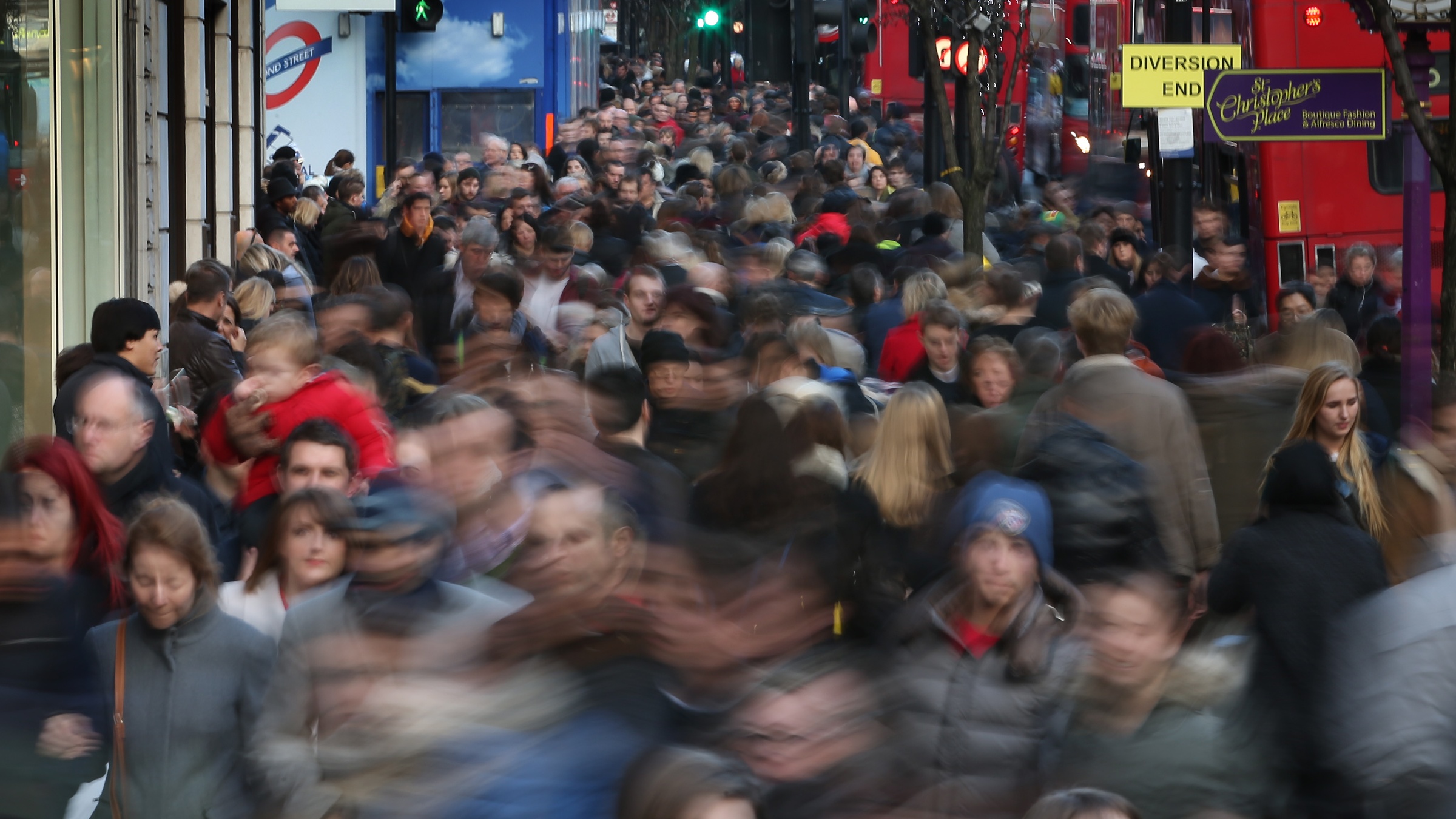‘Humanity - all 7.8 billion of us - is on a collision course with the planet’
Your digest of analysis and commentary from the British and international press

- 1. We’re on a collision course with the planet. But with public support, that can change
- 2. We need to speed up our Covid vaccination plan
- 3. The end of lockdown could trigger a surge in crime
- 4. Female Imams Aren’t The Only Feminist Solution. I Know Because I Am One
- 5. State support for journalism is in the public interest
A free daily email with the biggest news stories of the day – and the best features from TheWeek.com
You are now subscribed
Your newsletter sign-up was successful
1. We’re on a collision course with the planet. But with public support, that can change
Larry Elliott in The Guardian
on activist states
“Let’s be honest: few government-commissioned reports make a real difference”, says Larry Elliott. What hope then, continues The Guardian’s economics editor, for Cambridge University academic Professor Partha Dasgupta’s report that “humanity – all 7.8 billion of us – is on a collision course with the planet”? The Covid pandemic has “illustrated the virtues of smart, activist states” who can stimulate real world change. “The need for change is glaringly obvious, and the opportunity is there too,” he adds. “That opportunity must not be squandered.”
The Week
Escape your echo chamber. Get the facts behind the news, plus analysis from multiple perspectives.

Sign up for The Week's Free Newsletters
From our morning news briefing to a weekly Good News Newsletter, get the best of The Week delivered directly to your inbox.
From our morning news briefing to a weekly Good News Newsletter, get the best of The Week delivered directly to your inbox.
2. We need to speed up our Covid vaccination plan
Paul Nurse in the Times
on accelerating the jabs
“Britain’s vaccine programme is going very well but it could go even faster,” says Paul Nurse, director of the Francis Crick Institute. “We are in lockdown, there is huge public demand to be vaccinated at the moment, motivation is high,” he adds. “That momentum must be maintained in case motivation is lost for lower priority groups when restrictions are eased.” After all, as he points out, the stakes are high: every delay “costs lives and livelihoods”.
A free daily email with the biggest news stories of the day – and the best features from TheWeek.com
3. The end of lockdown could trigger a surge in crime
Charlie Taylor in The Daily Telegraph
on post-lockdown rehabilitation
“The plight of prisoners may not evoke much sympathy at a time when the rest of us have been stuck at home,” Charlie Taylor, Her Majesty’s Chief Inspector of Prisons, writes in The Telegraph. But “apart from a handful of lifers, all of the 78,000 prisoners in England and Wales will one day be released”. Once lockdown is lifted, there must be a “much more ambitious response to restoring education, training and rehabilitation” he says. Otherwise there will be an inevitable “surge in crime”.
4. Female Imams Aren’t The Only Feminist Solution. I Know Because I Am One
Naima Khan for Huffington Post
on BBC bombast
Naima Khan says BBC presenter Emma Barnett was wrong to use female imams as a battleground in a recent interview with Zara Mohammed, the first female secretary general of the Muslim Council of Britain. Barnett’s hostile questioning led to “facepalming from Muslim women across the country” at the presenter’s “lack of religious literacy” and at the “shaming of a Muslim woman of colour by a white woman on a woman-led radio show”, Khan says. “Reducing our feminist progress to this one question about the number of female imams marginalises the other brilliant progress happening and imposes the priorities of white feminism on Muslim women.”
5. State support for journalism is in the public interest
Séamus Dooley in The Irish Times
on the health of the media
“At a time when public-interest journalism is most needed the media is in crisis,” says Séamus Dooley in The Irish Times. “Commercial media organisations are struggling to survive, the regional newspaper sector teeters on the edge while Facebook and Google siphon off revenue by exploiting the work” of journalists and writers. “State support” for the media is in the public interest, he adds. “The time has come to challenge the shibboleth that acceptance of government support, however regulated, would automatically compromise editorial standards.”